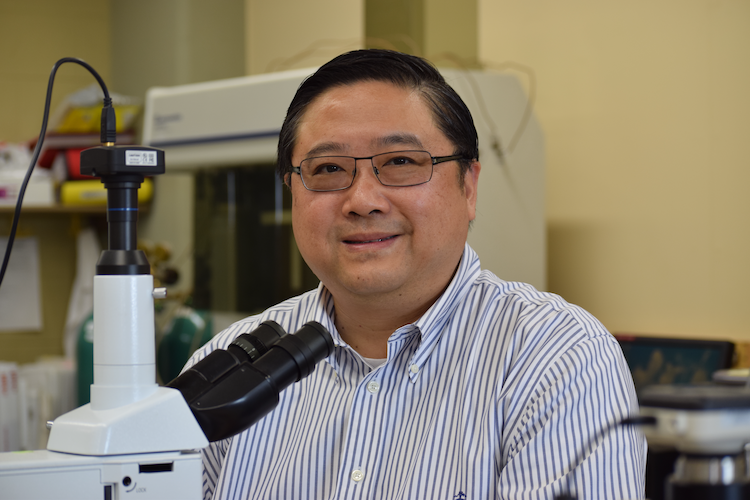The U.S. Department of Energy (DOE), through Pacific Northwest National Laboratory (PNNL), awarded UWM’s Deyang Qu $900,000 in April to develop high energy density, all solid-state lithium batteries, which are considered to be the next generation of energy storage.
Qu is a distinguished professor and the Johnson Controls Endowed Professor in Energy Storage in UWM’s College of Engineering & Applied Science.
The three-year grant comes from the prestigious Battery500 Consortium, a public-private team of battery experts—led by PNNL—that is collaborating to develop electric vehicle batteries that are more reliable, higher performing, safer, and less expensive than current batteries. Battery500’s focus is on lithium metal batteries. Two researchers on the team have won Nobel Prizes in chemistry for their contributions to developing lithium-ion batteries, the world’s most powerful battery and a rechargeable energy source.
Now, researchers are aiming to create a battery that holds twice as much energy.
“Developing batteries with higher energy density is key to the battery revolution and society’s decreasing reliance on fossil fuels,” said Qu, who applies his knowledge of chemistry and technology to advance electrification. “Solid-state batteries increase the capacity of electric vehicle batteries.”
Qu’s battery research backed by $7.7 million of grants
Since joining the college in 2015, Qu has procured more than $7.7 million of external grants and contracts from the National Science Foundation, the U.S. Department of Energy and companies including Johnson Controls (now Clarios).
The DOE awarded him $1.25 million to research the roadblock to producing higher-density energy storage in lithium batteries: dendrite growth.
His other awards include $2 million to research lithium-sulfur batteries and $650,000 to study all solid-state lithium-ion batteries.
